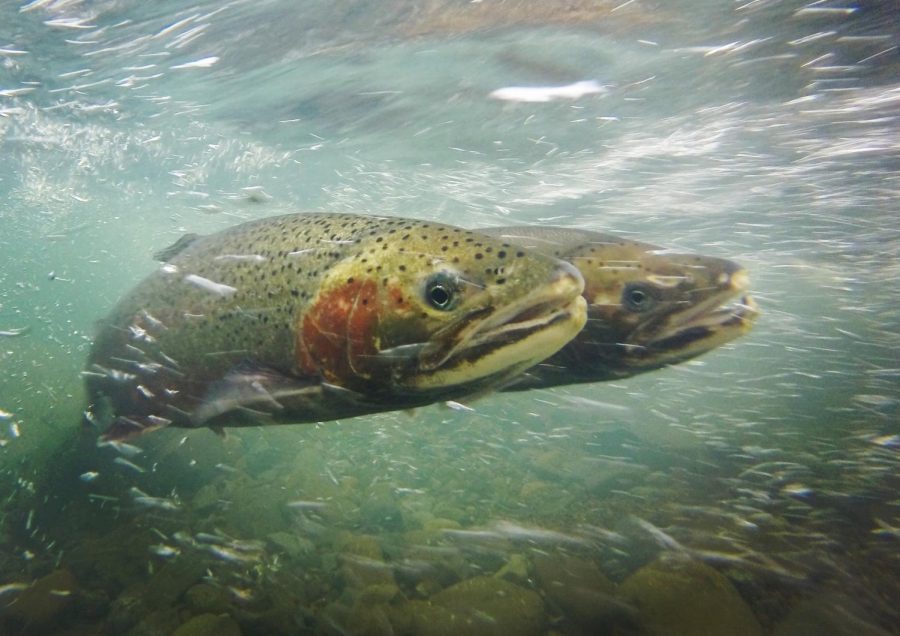Environmental groups intend to sue Idaho fish officials
Concern over decline of specific Snake River fish present for years
The Endangered Species Act protects animals from more than just being killed. Harassing, harming, pursuing and catch and release are all considered violations. Entities must be notified 60 days prior before they can be sued.
October 17, 2018
Five Pacific Northwest environmental groups sent a notice of their intent to sue officials of the Idaho Department of Fish and Game and Idaho Fish and Game Commission on Oct. 9.
The Conservation Angler, Wild Fish Conservancy, Snake River Waterkeeper, Friends of the Clearwater and Idaho Rivers United are suing the officials under the Endangered Species Act for allowing sport fisheries that harm and prevent the recovery of the wild Snake River Basin steelhead.
Gary Macfarlane, ecosystems defense director at Friends of the Clearwater, said currently Idaho’s steelhead fishery does not have an approved fisheries management and evaluation plan covering the take of wild Snake River Basin steelhead.
Under the Endangered Species Act, take is not just killing an animal, but also means to harass, harm, pursue, hunt, shoot, wound, trap, capture or collect, Macfarlane said. This also includes catch and release.
“TosueundertheEnvironmental Protection Act you need to give an entity 60 days’ notice to try to correct the problems, then you can file suit,” Macfarlane said.
He said how far this case goes will depend on the reaction and action of Idaho Department of Fish and Game and what the National Oceanic and Atmospheric Administration (NOAA) fisheries department does.
The groups are asking the two fish and game units to close sport fisheries for steelhead throughout Idaho for this season. Mcfarlane said they need to take a step to recognize the serious threat to wild steelhead and help with recovery. Washington and Oregon have already closed fishing seasons for the Snake River.
“In the lower 48 states the healthiest anadromous fish, those who go to the ocean and spawn in freshwater, are in the Clearwater Basin and Salmon River Basin,” Mcfarlane said.
The NOAA listed the Snake River Basin steelhead as a threatened species in 1997. Mcfarlane said it looks more like the fish are endangered given their current low numbers.
Nick Gayeski, an aquatic ecologist with the Wild Fish Conservancy, said there has been concern for the decline of Snake River Basin steelhead for several years, particularly last year when numbers dramatically dropped.
The main culprit for the decline in numbers, according to the best current science, are the Lower Snake River dams, Mcfarlane said. However, he said they face a gauntlet of other problems.
Steelhead provide an ecological benefit of helping nutrient-poor soils by spreading nutrients after death or being eaten by other animals, Mcfarlane said. They are also important for native populations and recreational benefits, he said.
“We are looking at extinction here and we think that’s ecologically wrong, and morally reprehensible, to allow these fish to become extinct,” Mcfarlane said.

















